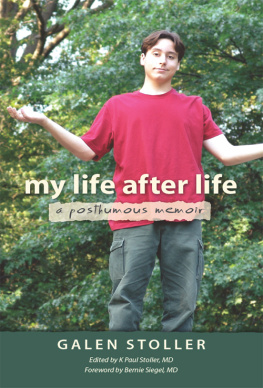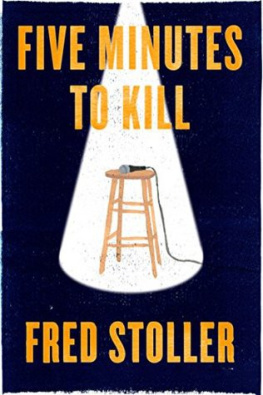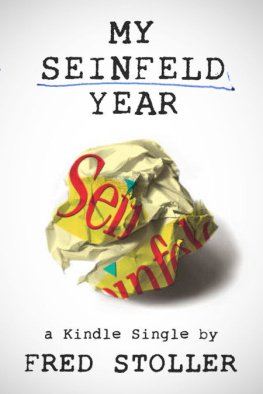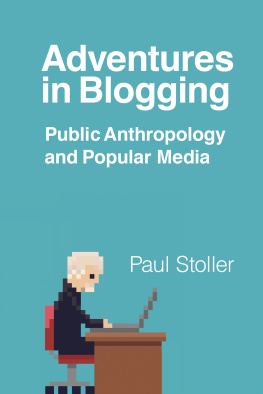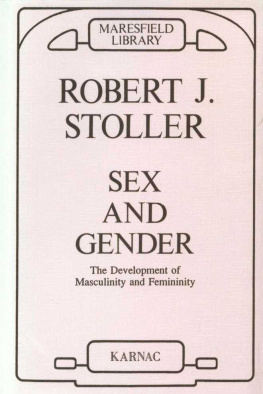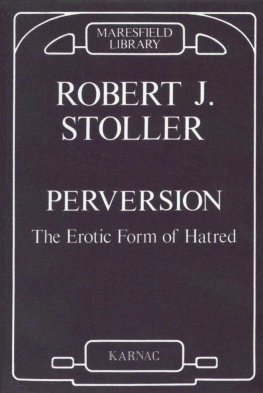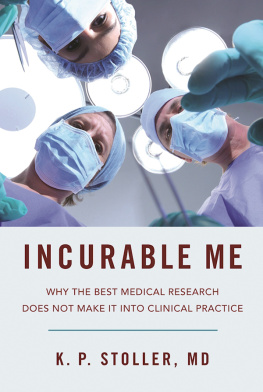PAUL STOLLER is professor of anthropology at West Chester University. He is the author of many books, most recently Stranger in the Village of the Sick and The Power of the Between, the latter published by the University of Chicago Press.
The University of Chicago Press, Chicago 60637
The University of Chicago Press, Ltd., London
2014 by The University of Chicago
All rights reserved. Published 2014.
Printed in the United States of America
23 22 21 20 19 18 17 16 15 14 1 2 3 4 5
DOI: 10.7208/Chicago/9780226178967.001.0001
Library of Congress Cataloging-in-Publication Data
Stoller, Paul, author.
Yayas story : the quest for well-being in the world / Paul Stoller.
pages cm
Includes bibliographical references and index.
ISBN 978-0-226-17879-0 (hardcover : alkaline paper) ISBN 978-0-226-17882-0 (paperback : alkaline paper) ISBN 978-0-226-17896-7 (e-book)
1. Stoller, Paul. 2. Songhai (African people)NigerBiography. 3. NigeriensNew York (State)New YorkBiography. 4. AnthropologistsUnited StatesBiography. 5. Interracial friendshipCase studies. I. Title.
F128.9.A24S761 2014
301.092dc23
[B]
2014000536

This paper meets the requirements of ANSI/NISO Z39.48-1992 (Permanence of Paper).
: Adamu Jenitongo, sohanci of Tillabri, Niger. Photo by the author.
ACKNOWLEDGMENTS
The idea that writing is a solitary pursuit is partially true. Writers must find time and space to create their various works. But as all writers know, the solitary pursuit of text is one of many steps they must take to create and produce a published work. In the case of academic works, research and analysis precede the creation of draft text. Once that draft is ready, scholars usually send it to colleagues for comments. Comments in hand, scholars then revise the manuscript and prepare it for submission to a publisher. The publisher then finds experts to evaluate the text, provide additional comments, and make recommendations. If the recommendations are positive, publisher committees meet to discuss the project and make a final recommendation. If that recommendation is positive, the publisher offers a contract, and the manuscript goes into editing, during which editorial changes are suggested and implemented, which means that page proofs can then be generated, read, and corrected, all of which leads to publication. During this process the publisher hones its marketing strategy, crafting promotional copy in order to advertise the forthcoming publication. After a year the book is finally published.
Many people, then, are involved in the miraculous process through which an idea is transformed into a book, which means, of course, that any scholar, this one included, is indebted to institutions for research funding and to trusted colleagues, friends, and family for ever-necessary guidance. Such funding and guidance is needed if the final product is going to sing its song for a long period of time.
Yayas Story is the result of many years of ethnographic research in the Republic of Niger and New York City. For granting me funds to engage in field research, I am grateful to the US Department of Education (Fulbright Research Program), the American Philosophical Foundation, the NATO Postdoctoral Fellowship in Science Program, the Wenner-Gren Foundation for Anthropological Research, the National Science Foundation, and West Chester University (the Faculty Development and College of Arts and Science research programs). For funds that provided time for writing, I acknowledge the John Simon Guggenheim Foundation; the School for Advanced Research in Santa Fe, New Mexico; the National Endowment for the Humanities; and West Chester University.
Yayas Story emerged from a paper I delivered at a conference, the Moral Borders of Self and Other: Migration, Reconciliation, and Human Wellbeing, that was convened by A. David Napier and Angela Hobart in June 2011 at Monte Verita in Ascona, Switzerland. Angela Hobarts Centro Incontri Umani sponsored the conference. I thank A. David Napier and Angela Hobart for their gracious invitation, commentary, and support. Feedback from a supportive and interdisciplinary audience sparked my imagination and convinced me to think more deeply about the issue of well-being in social life. Ongoing dialogue convinced me that I should transform the paper into a book-length manuscript. And so I did. For their comments and conversations on a very long path of discovery, I thank Michael Adelberg, Ruth Behar, Paul Clough, Valerian DeSousa, Jean-Paul Dumont, Jim Fernandez, Alma Gottlieb, Philip Graham, Sten Hagberg, Ulf Hannerz, Mark Harris, Brita Hermelin, Shahram Khosravi, Jerome Lewis, Christos Lynteris, Nick Mai, Marie Mauz, Pauline Napier, Kirin Narayan, David Nugent, Nigel Rapport, Rodney Reynolds, Victoria Sultana, Barbara Tedlock, Dennis Tedlock, Gina Ulysse, Anna-Maria Volkmann, and Helena Wulff. For their ongoing support and inspiration I thank members of my family, Mitchell and Sheri Stoller, Lauren Stoller, Betsy Stoller, Beverly Gendelman, Melina McConatha, and Lauren McConatha. Since this book is about the future, I especially acknowledge Helena McConatha Rosle, eight years old, whose wondrous apprehension of the world is an inspiration, and Roxanne McConatha Spellman, eight months old, who represents the dawn of a new era. Sarah Alderman, Anna Mariella Bacigalupo, and Valerian De-Sousa read the entire manuscript, and their comments proved to be helpful. Comments from the University of Chicago Presss two anonymous readers were perceptive and quite useful. They have improved the quality of this text. Every writer appreciates good copyediting. The coherence and readability of this text are due in large measure to the masterly touch of Dawn Hall.
I would also like to thank three other people who have been central to my development as a scholar and a person. More than twenty-five years ago, T. David Brent risked publishing an unconventional book by a little-known author. So began a professional and personal friendship that has stood the test of time. I am forever grateful for Davids trust in me, and hope this latest book reaffirms that trust. John Chernoffs friendship, advice, and love of life have always clarified for me the essential elements of living in the world. Our regular discussions have always steered me in fruitful directions. Finally, Jasmin Tahmaseb McConatha has made me a better person, scholar, and writer. Our ongoing conversations about whats important have given texture and direction to this book and to the meaning of my life.

 This paper meets the requirements of ANSI/NISO Z39.48-1992 (Permanence of Paper).
This paper meets the requirements of ANSI/NISO Z39.48-1992 (Permanence of Paper).

